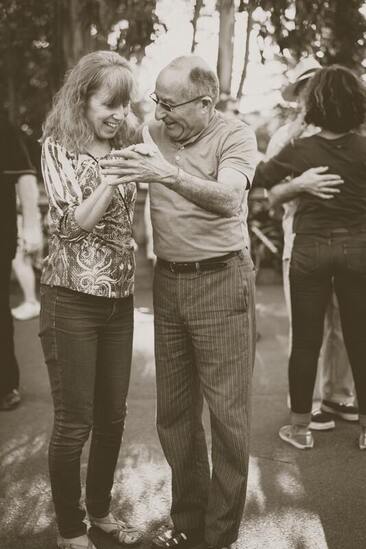|
Friendship is a huge part of our lives. Friends are there for us—providing love, comfort, and support during good and bad times.
As we age, friendships become even more important. We need friends to process the changes in our lives and help us stay healthy. But paradoxically, as we grow older, the number of friends around us begins to dwindle until, eventually, we're left with just a few close connections. Why Is It Hard for Old People to Establish and Maintain Friendships? In the past couple of decades, there's been an increase in loneliness among older adults. In the U.S., it has been reported that 24 percent of people above the age of 65 suffer loneliness. As we grow older, it's natural to become less tolerant of the other people in our lives. There's less trust, and we tend to be more needy and protective of what we've got. With the advance in age, we also become more insular. And as we begin to look and act differently, we become harder to relate with, which limits the potential for friendships. Importance of Friendship As We Age Friendship Can Help Improve Your Health Research has found that loneliness is associated with an increased risk of mortality. A recent study has shown that loneliness can cause as much damage as smoking 15 cigarettes per day. Friends are not only a source of companionship, but they also help monitor one's health. Friends can also offer assistance during emergencies like calling a doctor. It Can Improve Your Cognitive Function Friendships can help combat depression, fight loneliness and help manage depression. These are essential factors in maintaining a sharp brain. It Can Improve Your Physical Health Friendships keep you involved in life and help prevent physical decline like arthritis, decreased muscle mass, and even arthritis of the hip or shoulder joints by encouraging exercise and eating healthy foods, including plenty of vegetables. It Can Prevent or Treat Chronic Disease Friendships are associated with a lower risk of developing a chronic illness like diabetes and heart disease, which is a cause of one-third of death in the U.S. among people above the age of 65. It Can Help You Recover From Surgery or an Illness Friends can help you manage surgery or the physical and emotional stress of an illness. Research shows that people with a support network often live longer. It Can Increase the Quality of Life Friendships offer comfort, companionship, and emotional support during major life changes like retirement, relocation, divorce, and bereavement. Friendships can also help make everyday activities easier, like bathing, preparing meals, grocery shopping, running errands, doctor appointments, and many others. It Helps in the Early Detection of Dementia If you are an old person living alone, you may never realize when you are beginning to suffer from dementia. But with friends around, there is a chance that they might notice changes and help you get the necessary treatment in good time. It Helps Boost Your Self-Esteem and Overall Well-Being During Old Age You tend to feel wanted, loved, and happy with friends around you. Friendship can play an important role in our lives. Apart from the health benefits, friendship also contributes to building new memories and creating happiness for aging adults. How to Make Friends as an Older Adult
If completely lost in the journey of making new friends, it's advisable to seek the support of social care services. At Bridgeway Senior Healthcare, we specialize in elder care services. Having been in business since 1981, we have established ourselves as one of the best elder care agencies with campuses in Bridgewater and Hillsborough, New Jersey. We have a well-trained team consisting of a nurse practitioner, a well-trained geriatric doctor, a nutritionist, a registered nurse, and licensed nursing assistants. To learn more about what makes senior living at Bridgeway Senior Healthcare at Hillsborough so special, get in touch with us today.
0 Comments
Leave a Reply. |
|
QUICK LINKS
|
Award-winning care as recognized by
Your comments and satisfaction are important to us.
Consider writing a review on Google or Facebook. |
© 2024 Bridgeway Senior Healthcare. All Rights Reserved | Privacy Policy | Sitemap







